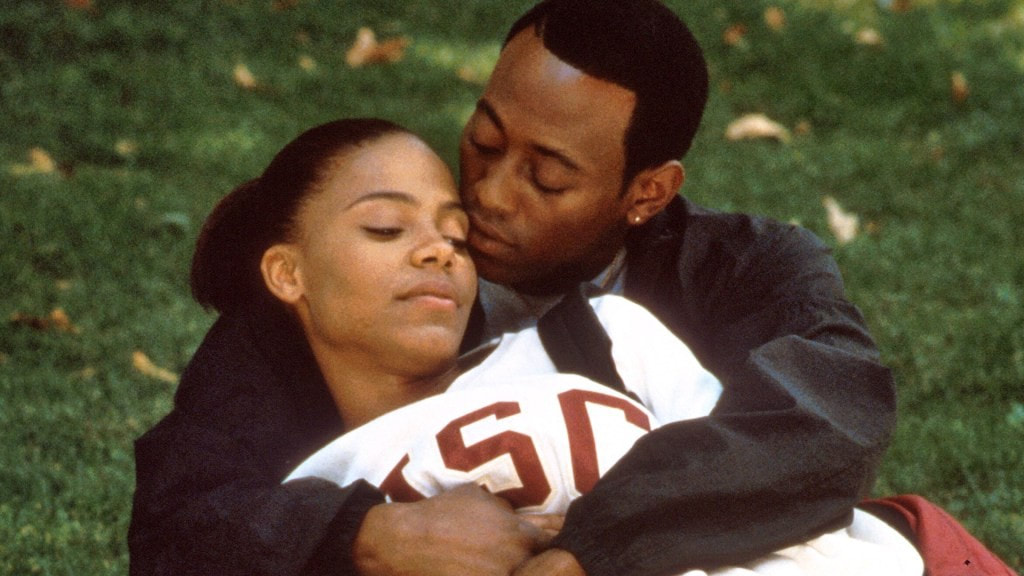Prince-Blythewood scores the opening of her film with Al Green’s Love and Happiness, implicitly drawing the connection between happiness and basketball. That’s a connection that I can get behind, even long after my body has made it more difficult to play. Plenty of films that feature basketball have little sense of the flow of a game or can’t film a coherent on-court scene to save its life. Prince-Blythewood, perhaps foreshadowing her 2020 foray into superhero action with The Old Guard, has no problem making the game look real. One segment is in Monica’s head as she faces off against a defensive opponent, thinking through her options as she jukes and feints and protects the ball. It’s one of many credible sequences that not only enliven the film, but inform the characters. Monica’s a fiery player prone to outbursts in high school, especially after she’s just made a mistake, but her growth and maturity is apparent when, in college, she causes a turnover and, in the transition to defense, draws a charge instead of fooling out of anger or giving up in impotent frustration. Without knowledge of the psychology of the game, this little bit of competence porn would’ve been elided. Its presence places the viewer in competent hands.
The former half of the title is just as on point as the latter. Essentially a compressed Before trilogy between Monica and Quincy, the film fills in the gaps between the time jumps through action and character instead of clumsy exposition. The aforementioned scene of Quincy sleeping in Monica’s room is wordless and loaded with familiarity. Their closeness is fully established in these few minutes, but what keeps them apart is just as understandable. In both cases, they’re living into their upbringings, as Love and Basketball has its arms around its leads’ families as well. For Quincy, his father is holding him to a standard that neither he nor Haysbert’s Zeke can meet, and for Monica, she’s pushing back against the stereotypically feminine role her mother (Alfre Woodard) has long pushed on her athletic daughter. Quincy’s reinforcement of masculine stoicism and Monica’s rejection of a mid-century feminine acquiescence makes them both stubborn, and the backgrounding of their shared difficulties turns the romantic story cliché of second act artificial separation into, again, a credible development.
The well-considered arcs are beautifully inhabited by the cast. After playing a couple in the previous year’s The Wood, Lathan and Epps have a honed chemistry that sustains the film when they’re apart. Scenes of them squaring off on the court are as endearing and steamy as I’ve long heard they were. Haysbert and Woodard, to no surprise, are also strong, playing characters who are imperfect but whose attempts to connect with their children are juiced with breaking voices and building tears. The deeper bench of the cast contains no missing links, especially Erika Ringor as a rival of Monica’s at USC who reappears without any cheap rancor and Monica’s college coach played by Christine Dunford, embodying a sharp-featured sideline dictator who’s tough but fair.
Prince-Blythewood’s film seems like a four-quadrant hit based on the title alone but it’s had to settle for cult status since its release, not unlike Prince-Blythewood’s later follow-up Beyond the Lights, another compelling and underseen romance. Love and Basketball has been justly acclaimed since its release as a must-see romance, and one I should’ve taken in a long time ago. If Prince-Blythewood gets sucked into the world of superhero movies, she’ll hopefully be able to infuse some of the intimacy from her debut into them, and not get lost in notes and studio-dictated assistant directors. At least more people will see what she can do. A-

 RSS Feed
RSS Feed